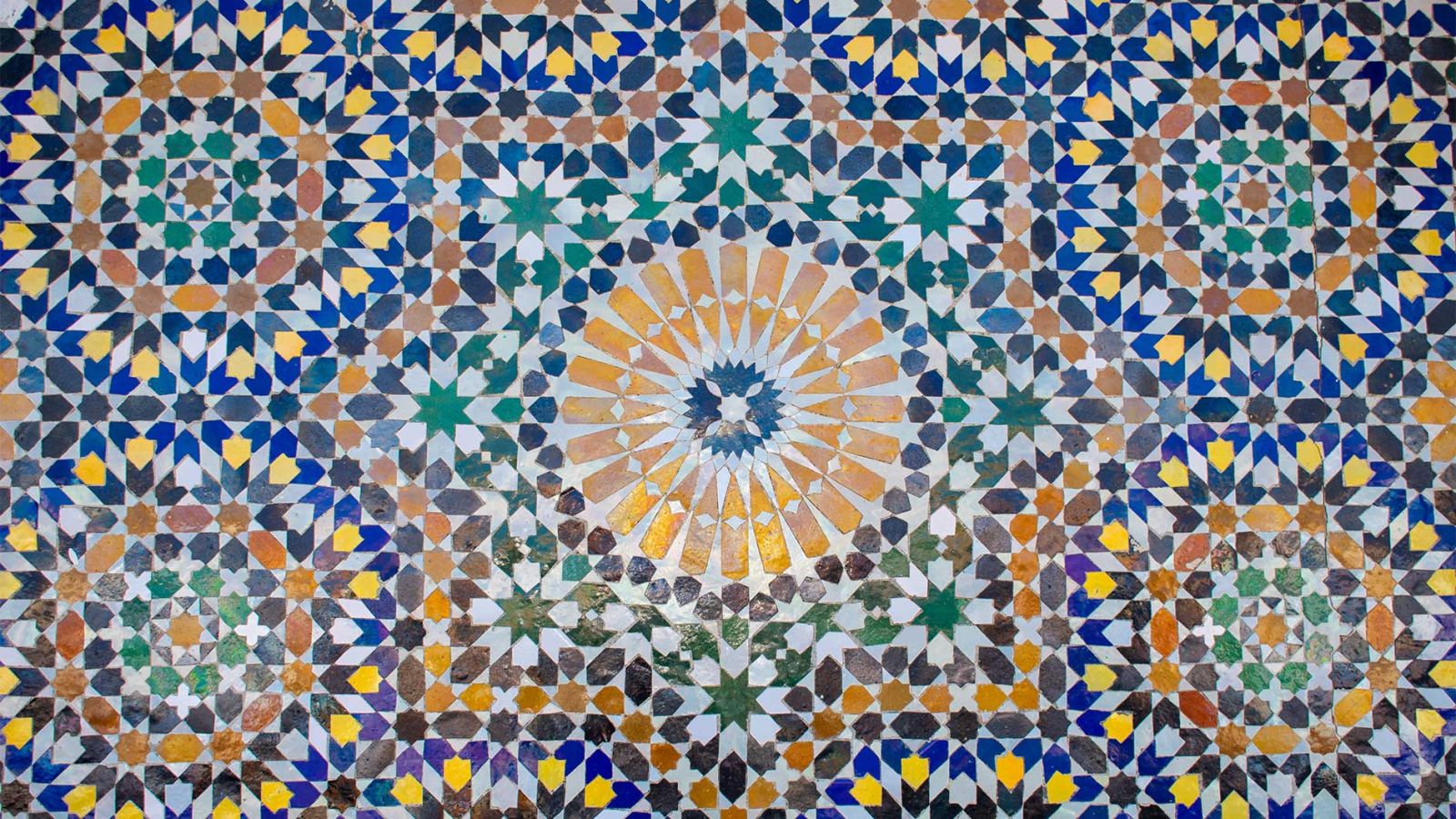The Ruling Concerning Multiple Groups and Parties
Al-ʿAllāmah ʿAbd al-ʿAzīz ibn ʿAbdullāh ibn Bāz, Al-ʿAllāmah Muḥammad Nāṣir al-Dīn al-Albānī, Al-ʿAllāmah Muḥammad ibn Ṣāliḥ al-ʿUthaymīn


I say: There is not either in the Book or the Sunnah that which allows multiple groups and parties.
The Fatāwá of Al-ʿAllāmah ʿAbd al-ʿAzīz ibn ʿAbdullāh ibn Bāz
[Q]: What is the obligation upon the Muslim scholars with regards to the large number of jam’iyyaat (societies) and jamāʿāt (parties) in the Islamic lands and elsewhere, and with regards to the differences that exist between them, to the point that each group declares others to be misguided. Do you not see that it is befitting to enter into explaining the like of this manner, and to clarify the truth concerning their differences, for fear that these differences will increase and lead to evil consequences for the Muslims?
[A]: Our Prophet (ṣallallāhu ʿalayhi wa-sallam) made clear to us a single way which it is obligatory upon the Muslims to follow and traverse, and that is the Straight Path of Allāh and the methodology of His upright Religion. Allāh – the Most High – said:
“And this is My Straight Path, so follow it and do not follow other paths that will separate you from His Path. This has He ordained for you, that you may become pious.”
[Sūrah al-Anʿām, 6:153]
Just as the Lord of Might and Majesty warned the Ummah (nation) of Muḥammad (ṣallallāhu ʿalayhi wa-sallam) against splitting and disunity, since that is one of the greatest causes of failure and of the enemy taking control, as occurs in the statement of Allāh – the mighty and Majestic – :
“And hold fast altogether to the rope of Allāh and do not be divided.”
[Sūrah Āli ʿImrān, 3:101]
And His – the Most High – saying:
“He has ordained for you the same religion which He ordained for Nūḥ, and that which We revealed to you, and that which We ordained for Ibrāhīm, Mūsá and ’ʿĪsá saying that you should establish the religion by doing that which you are ordered with, and make no divisions in it. Intolerable for the Pagans is that to which you call them.”
[Sūrah al-Shūrá, 42:13]
So this is a divine call to unity and for hearts to be harmonized. And in any Islamic land, if there are many groups for the purpose of good, aid, cooperating in righteousness and piety between the Muslims – without there being differences between the desires of the companions and followers – then this is good, is a blessing, and produces great benefit.
However, if each of them declare others to be misguided and attack their actions, then this harm is very great and its evil consequences are very serious. Then what is obligatory upon the Muslims is to clarify the true state of affairs and to discuss with each group and sincerely advise all of them that they should proceed upon the way laid down by Allāh upon His servants, and upon that which our Prophet Muḥammad (ṣallallāhu ʿalayhi wa-sallam) called to. Then those who ignore this, or continue in their stubbornness, due to personal benefit or goal – known only to Allāh – then what is obligatory upon those who know the reality is to make this known about them and to warn against them, so that the people may avoid their path, and that those who do not know the reality of their affair may not fall into it and be led astray, and that they are not turned away from the Straight Path which Allāh ordered that we follow, as occurs in His – the Mighty and Majestic – saying:
“And this is My Straight Path, so follow it and do not follow other paths that will separate you from His Path. This has He ordained for you that you may become pious.”
[Sūrah al-Anʿām, 6:153]
And from that which there is no doubt about is that the multitude of sects and groups in the Islamic society is, firstly something desired by Shayṭān, and secondly something desired by the enemies of Islām from amongst mankind. Since agreement and unification of the Muslims and their being aware of the dangers that threaten them and their ʿaqīdah (beliefs), will make them active in refuting and rebutting it, and acting in a unified manner for the benefit of the Muslims, thereby repelling the danger from their Religion, their lands and their brothers. And this is something which the enemies – from amongst mankind and jinn – are not pleased with. Therefore, they are very eager to split-up the Muslims, destroy their unity and to sow the seeds to enmity and discord between them. We ask Allāh that He unites the Muslims upon the truth and that He removes from their society every type of misguidance and every cause of discord. Indeed, He is the One Who is able to do that, and He is the one having full power over it.1
the Fatāwá of Al-ʿAllāmah Muḥammad Nāṣir al-Dīn al-Albānī
[Q]: What is the Sharīʿah ruling concerning these numerous Islamic groups, parties and organizations which differ amongst themselves with regards to their minhaaj (methodology), their modes of operations, their daʿwah (call), their ʿaqīdah (beliefs) and the foundations upon which they are based? Especially when the group of truth is a single one as is proven in the ḥadīth.
[A]: We have spoken much about the answer to this question, therefore we shall be brief whilst speaking about it. So we say: It will not be hidden from any Muslim who has knowledge of the Book and the Sunnah, and the which the Salaf al-Ṣāliḥ (may Allāh be pleased with them all) were upon, that firstly; formation of parties and groups with differing thought, and secondly; differing in minhaaj (methodology), is not from Islām at all. Rather it is from what our Lord – the Mighty and Majestic – has actually forbidden, in more than one āyah (verse) from the Noble Qurʾān. From this is His – the Most High – saying:
“And do not be like those who worship others besides Allāh – those who split up their religion and become sects. Each party rejoicing only in that which is with them.”
[Sūrah al-Rūm, 30:31]
And our Lord – the Mighty and Majestic – also says:
“And if your Lord had so willed, He could have made mankind a single nation. But they will not cease to differ, except upon those whom your Lord has bestowed Mercy.”
[Sūrah Hūd, 11:118-119]
So Allāh – the Most Blessed, the Most High – made exempted from this differing and this disagreement – a differing which must occur by Allāh’s creational Decree, but not as something which He is pleased with or that He desires from us – that sect upon which He has bestowed His Mercy, as occurs in His saying:
“…except upon those whom your Lord has bestowed His Mercy.”
And there is not doubt whatsoever, that any group that has a purity of intention for Allāh, and earnestly desire to be from among that nation which is exempted from this differing; and upon whom Allāh has bestowed His Mercy, then there is no way to practically reach and attain this in the Islamic societies, except by returning to the Book and to the Sunnah of the Messenger (ṣallallāhu ʿalayhi wa-sallam) and to what our Salaf al-Ṣāliḥ (may Allāh be pleased with them all) were upon.
And the Messenger of Allāh (ṣallallāhu ʿalayhi wa-sallam) made clear the manhaj (methodology) and correct way, in many authentic aḥādīth: From the Prophet (ṣallallāhu ʿalayhi wa-sallam) that he drew a straight line upon the ground, and drew short lines around the straight line. The he recited the statement of Allāh – the Most High – :
“And this is My Straight Path, so follow it, and do not follow other paths that will separate you from His Path.”
[Sūrah al-Anʿām, 6:153]
He then pointed with his finger to the straight line and that this is the Straight Path of Allāh. Then he pointed to the other lines away from the Straight Path and said:
“At the head of each of these other paths, there is a devil calling the people to it.”2
And there is no doubt that these short paths are those that represent the many parties and groups. Therefore, what is obligatory upon every Muslim who truly desires to be from al-Firqatun-Naajiyah (the Saved-Sect) is that he proceeds upon the Straight Path – neither turning to its left or its right. And there is no party which is successful, except the Party of Allāh, about which the noble Qurʾān mentions to us:
“Indeed, it is the Party of Allāh who are successful.”
[Sūrah al-Mujaadilah 58:22]
Therefore, every party which is not the party of Allāh is only from the party of Shayṭān and not from the party of al-Raḥmān (the Most Merciful). And there is also no doubt at all, that proceeding upon the Straight Path requires knowledge of it, and this cannot be attained by mere organization and mere formation of parties – that desire to be upon true Islām, but not truly understanding what was the true Islām that Allāh – the Most Blessed, the Most High – sent down upon the heart of Muḥammad (ṣallallāhu ʿalayhi wa-sallam). And the sign of the Saved-Sect was clearly stated by the Prophet (ṣallallāhu ʿalayhi wa-sallam), when he was asked about it – so he said:
“It is that which I and my Companions are upon.”3
So this ḥadīth indicates to the one eagerly seeking knowledge of the Straight Path of Allāh, that one must have knowledge of two extremely important matters: Firstly: That which the Messenger of Allāh (ṣallallāhu ʿalayhi wa-sallam) was upon. Secondly: That which his Companions (raḍī Allāhu ʿanhum) were upon. This is because the noble Companions were the ones who transmitted the guidance of the Prophet (ṣallallāhu ʿalayhi wa-sallam) and his Sunnah to us, and secondly that they were the ones who best followed his Sunnah in practice. So since this is the case, it is not therefore possible for us to have a correct understanding of the Prophet’s Sunnah, except by way of his Companions… Thus, attaining a correct understanding of Islām cannot be possible except through knowing the life examples of the Companions and how they followed this great Islām, which they took from the Prophet (ṣallallāhu ʿalayhi wa-sallam) – either from his sayings, actions, or tacit approvals.
Therefore, we believe with certainty, that every group that does not establish itself upon the foundation of the Book and the Sunnah and the manhaj (methodology) of the Salaf al-Ṣāliḥ – having extensively and comprehensively studied the rulings of Islām, the large and the small, the principles and the branches – then this group will not be from the Saved-Sect; the Sect which proceeds upon the Straight Path which was indicated by the Messenger (ṣallallāhu ʿalayhi wa-sallam) in the authentic ḥadīth.
And if we imagined that there are separate groups in the Islamic lands, upon this manhaj (methodology), then they will not be considered as being parties, rather they are a single group, with a single manhaj and its path is a single one. Though they are separated by land, they are not, however, separated in thoughts, ʿaqīdah (beliefs), or manhaj. Rather this separation is only due to a physical separation in land – as opposed to the various groups and parties, which may even be in a single land, yet despite this, each party is pleased only with that which it possesses. As for these types of parties, we do not believe that they are upon the Straight Path. Rather we state with certainty, that they are upon those paths – at the head of each one is a devil calling the people to it. And hopefully, this contains an answer for what has preceded.4
The Fatāwá of Al-ʿAllāmah Muḥammad ibn Ṣāliḥ al-ʿUthaymīn
[Q]: Are there any texts from the Book of Allāh, or from the Sunnah of His Messenger (ṣallallāhu ʿalayhi wa-sallam) which contain an allowance of multiple groups and parties or al-Ikhwān?
[A]: I say: There is not either in the Book or the Sunnah that which allows multiple groups and parties. Rather, there is in the Book and the Sunnah that which censures this. Allāh – the Most High – said:
“Verily those who split up their Religion and become sects, you have no concern with them in the least. Their affair is with Allāh who will tell them about what they used to do.”
[Sūrah Anʿām 6:159]
Allāh – the Most High – said:
“Each sect rejoicing in that which is with itself.”
[Sūrah al-Rūm, 30:32]
And there is no doubt that these parties are contrary to what Allāh ordered. Rather what Allāh has ordered and encouraged is in His saying:
“And indeed, this Ummah of yours is one Ummah and I am your Lord, so fear and obey Me.”
[Sūrah al-Mu‘minūn 23:52]
And some people say: It s not possible for the daʿwah (call) to be strong unless it is done within the framework of a party! We say to that: This is incorrect! Rather the daʿwah will be strong whenever the person is under the Book of Allāh and the Sunnah of His Messenger (ṣallallāhu ʿalayhi wa-sallam) – following the narrations of the Prophet (ṣallallāhu ʿalayhi wa-sallam) and that of his Companions.5
Endnotes:
[1] Majmūʿ Fatāwá wal-Maqālāt al-Mutanawwiʿah (5/202-204).
[2] Ḥasan: Related by Aḥmad (1/435) and Sūrah al-Nisāʾī (7/49).
[3] Ḥasan: Related by at-Tirmidthī (5/26).
[4] Fatāwá Shaykh al-Albānī (p. 106-114).
[5] From a cassette entitled Majmūʿ Kalām al-ʿUlamāʾ fī ’Abd al-Raḥmān ʿAbd al-Khāliq (side two).
Most Popular: Last 30 Days

















